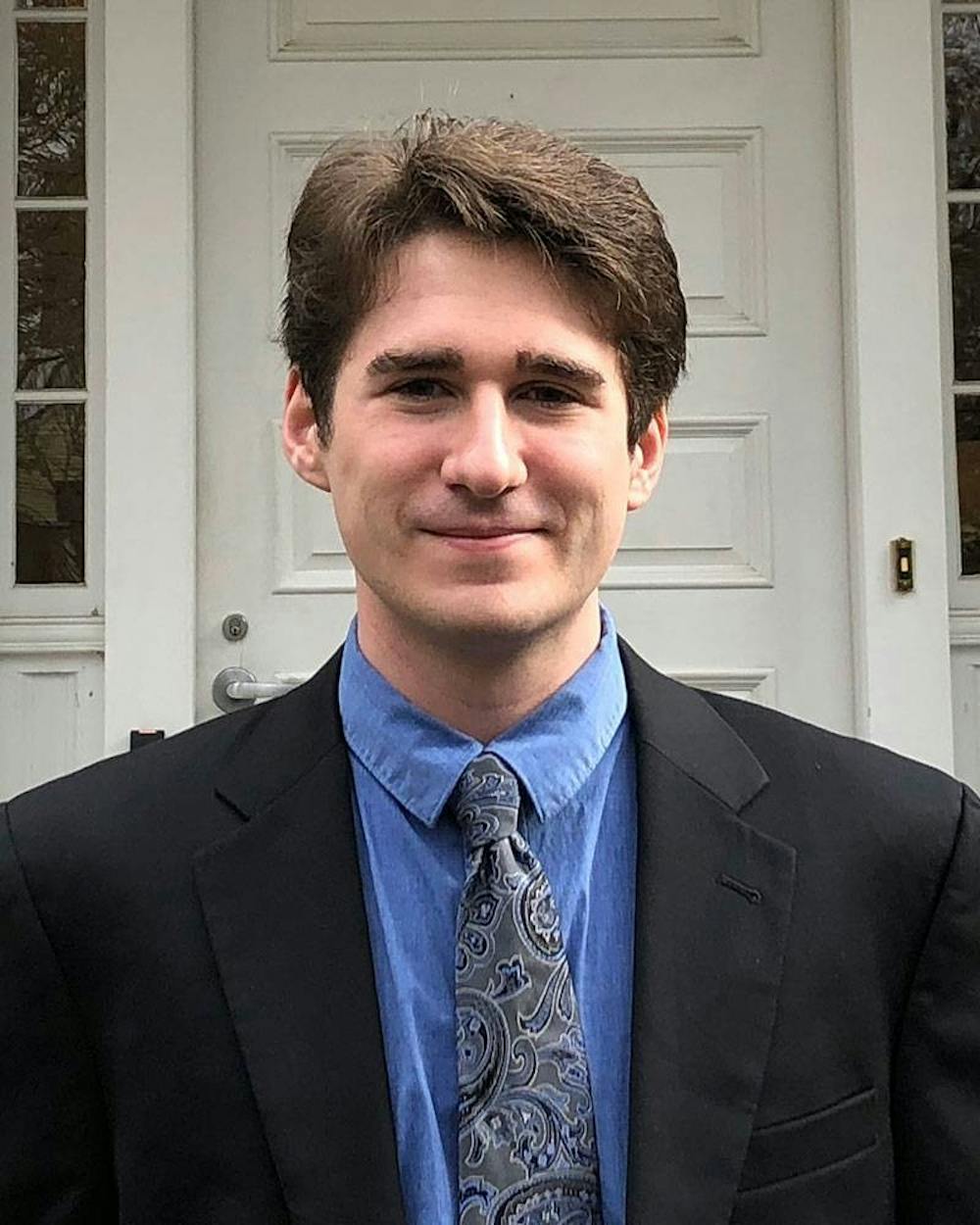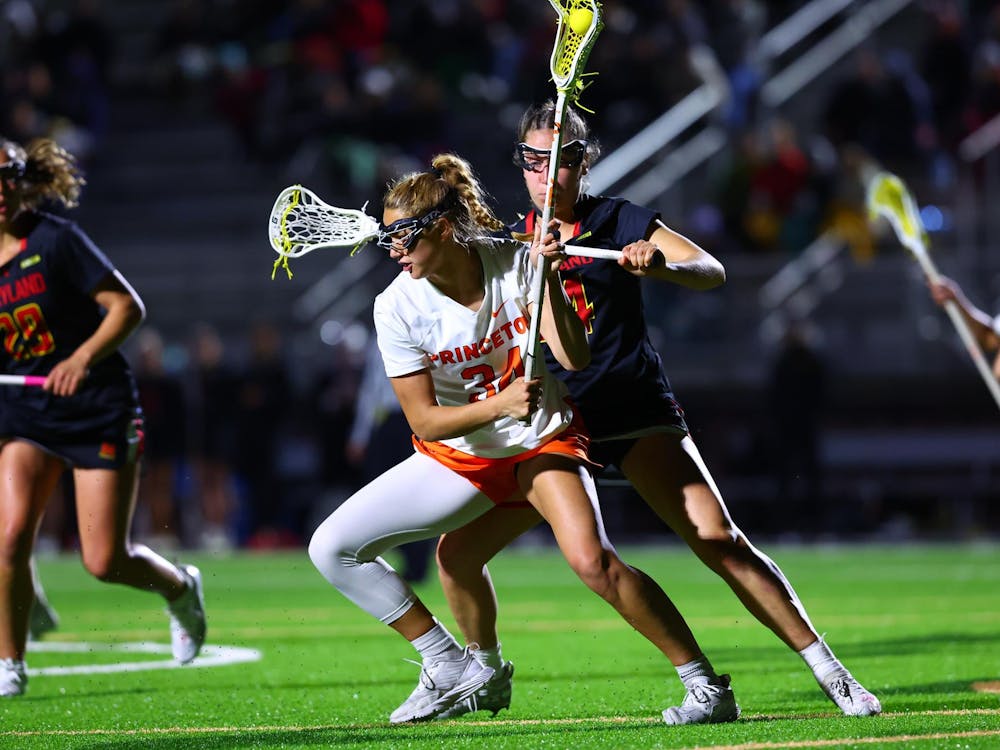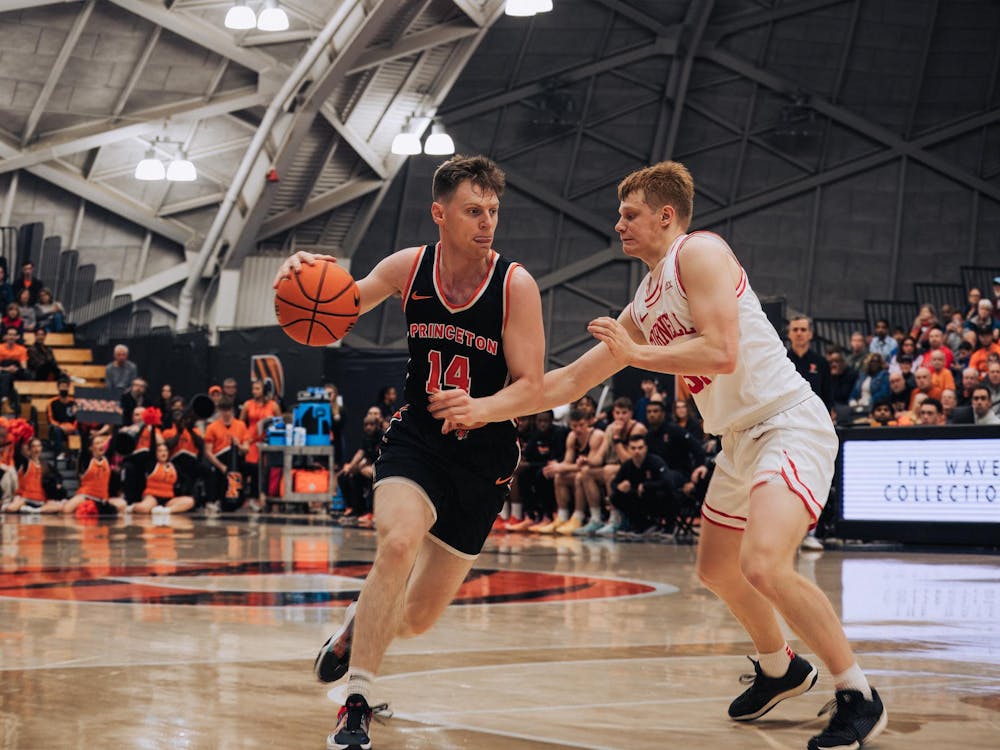When comparative literature concentrator and 2019 Rhodes Scholar John Hoffmeyer ’19 began at the University, he was torn between his musical and academic pursuits, especially with his growing interests in literature and philosophy. For a period, he even considered a concentration in math.
In the spring of his junior year, however, Hoffmeyer took MUS 359: Sound Cultures, taught by assistant music professor Gavin Steingo. Through the in-class exploration of sound theory and other analyses of music, Hoffmeyer realized that musicology was not limited to “theory or composition,” but could incorporate many of the “contemporary philosophical questions” he was interested in.
Hoffmeyer said that Steingo and the class helped raise his awareness of the many intersections between philosophy, comparative literature, and music.
At Oxford, Hoffmeyer plans to continue his interdisciplinary research and pursue a M.St. in modern languages with a focus on German and French philosophy and intellectual history, as well as Spanish literature, particularly the works of Jorge Luis Borges.
For instance, through a footnote in an in-class reading, Hoffmeyer discovered Italian avant-garde composer Luigi Nono, a figure who, like himself, had a variety of interests.
“He was … someone who was a very successful composer, and also who was extremely invested in the history of literature and philosophy,” he said. “And perhaps more than that, in using his work with a political motivation … to fight against the remnants of fascism.”
Hoffmeyer became more and more confident that his interests in academia and music weren’t mutually exclusive after all — rather, they completed each other well.
Around that time, while starting applications to several fellowships, he realized the range of possibilities that exist to conduct interdisciplinary research. Now Hoffmeyer integrates his diverse interests in music, literature, and philosophy in his research.
Though he is looking at the “more general, methodological field-based questions” on intersecting analyses of the three fields, he’s also interested in texts that incorporate musical and literary elements.
One of these texts is a string quartet by Nono that incorporates literature from German poet Friedrich Hölderlin —but without any human voice.
“As Nono said, he wanted the performers to sing them [the poetic fragments] internally,” Hoffmeyer said. He said that in the piece, the concept of silence is explored on both the literary and musical levels.
It’s just one example of many works which, he added, would be limited if approached from a purely musical or literary perspective. In the same vein, he is currently exploring German song cycles, individual songs intended to be performed in sequence, in his senior thesis research.

“I think it’s interesting to look at the ways in which composers can add or take away meaning or emphasize certain poetic elements through their own use of harmony … or particular melody,” Hoffmeyer said.
Though his interests today are thoroughly steeped in music, Hoffmeyer recalled that he struggled to find a musical community when growing up in Florence, S.C., but was lucky to have dedicated teachers.
Still, it wasn’t until he entered boarding school at age 15 that he was exposed to the “more professional sphere of classical music.”
Now he hopes to make classical music and academia more universally accessible.
“The fact that I was taken from not the most musical background, and then thrown into the elite of the elite, which was a huge privilege, has really spurred my interest in breaking down the elitism of classical music and also of academia,” he said.
Hoffmeyer aims to do so through interdisciplinary research and methods like lecture recitals, recitals accompanied by lectures on complementary subjects. The idea, he said, is that the combination of musical performance and verbal presentation can reach much broader audiences than just classical recitals or lectures.
Those recitals are now available on campus through the Princeton Chamber Music Society (PCMS), a music group that Hoffmeyer started last academic year with Nicholas Ioffreda ’20, the group’s current artistic director, and Janice Cheon ’20, the group’s current vice president.
PCMS has a “total-acceptance policy” and was “founded with the aim of offering chamber music performance, education, and outreach opportunities to all members of Princeton’s music community.”
Just in its first semester last spring, the group held two concerts: one featuring German chamber music and poetry and the second highlighting French modernism. The first, a collaboration with the German department, included a lecture by assistant professor Johannes Wankhammer on the German art song, songs usually set to poems and designed to be sung in recital.
“[The talk] did exactly what I want this kind of stuff to do,” he said. “It drew in the philosophers in the audience … it drew in the musicians … it drew in the poet enthusiasts in the audience, and then that [the lecture] was followed by a sequence of five songs.”
Hoffmeyer’s thesis advisor, comparative literature professor Daniel Heller-Roazen, remarked that Hoffmeyer’s ability to pursue his musical interests along with his academic ones is one of his more impressive accomplishments.
The pair first met in 2016 after Hoffmeyer wrote an email to Heller-Roazen in hopes of enrolling in his graduate seminar on medieval literature and philosophy. Heller-Roazen was surprised to receive such a request from a sophomore, but was impressed by Hoffmeyer’s abilities after reading a paper he had written that was sent with the letter of request.
“John quickly impressed me as an extraordinary student,” Heller-Roazen wrote in an email to The Daily Princetonian. “He is, first, exceptionally alert, attentive, and sharp in the class setting.”
He advised Hoffmeyer’s first junior paper, which discussed the “call of conscience” in German philosopher Martin Heidegger’s book “Being and Time.”
Hoffmeyer read the book, Heller-Roazen added, in German and English, “with unflagging attention to literary aspects of the prose.”
“John has mastered a set of skills seldom observed, even among our very best students,” he wrote, pointing to the perception with which Hoffmeyer has tackled philosophical subjects in his studies in German, French, and Mandarin.
Rachel Bergmann, a Ph.D. candidate in the Department of Comparative Literature, also noted Hoffmeyer’s sharp intellect. They first met Hoffmeyer, then only a first-year student, when the two were students in a comparative literature theory course. In the next semester, Bergmann led a precept in a class on Leo Tolstoy, which Hoffmeyer was a part of.
At the time, Hoffmeyer was planning on majoring in math.
“I was impressed with how well he was able to keep up with the theory for a grad student in math,” Bergmann said. “Imagine my surprise when I learned he wasn’t a grad student, but a freshman.”
When Bergmann was preparing to create and teach their own course through the Collaborative Teaching Initiative the following semester, they approached Hoffmeyer about providing input on the course.
Bergmann and Hoffmeyer have collaborated more since then and are currently working on a PCMS Schubert lecture recital that will take place in December. More than just his “formidable intellect,” however, they emphasized that what was striking about Hoffmeyer was his “radical decency.”
“There is … just a fundamental kindness that one does not often see in someone with his level of talents and caliber of accomplishment,” Bergmann said.
They’ve also noticed Hoffmeyer become increasingly willing to speak on issues related to “power and justice.”
“I think it is what Princeton needs, I think it is what scholarship needs, I think it’s what the world of Western classical music needs,” they said. “Neither of us believes that scholarship can be separated from the realm of politics or ethics.”
Bergmann said that Hoffmeyer’s willingness to address tough subjects gave them “hope and courage for the present.” When they first began to use gender-neutral pronouns, they said that he was the first person to use them correctly and naturally.
They said that Hoffmeyer addresses issues for “people who are marginalized both on campus and in the world.”
“I really couldn’t be more proud of him for that,” they said. “And that is the main reason why I think he deserves this Rhodes Scholarship more than anybody.”









